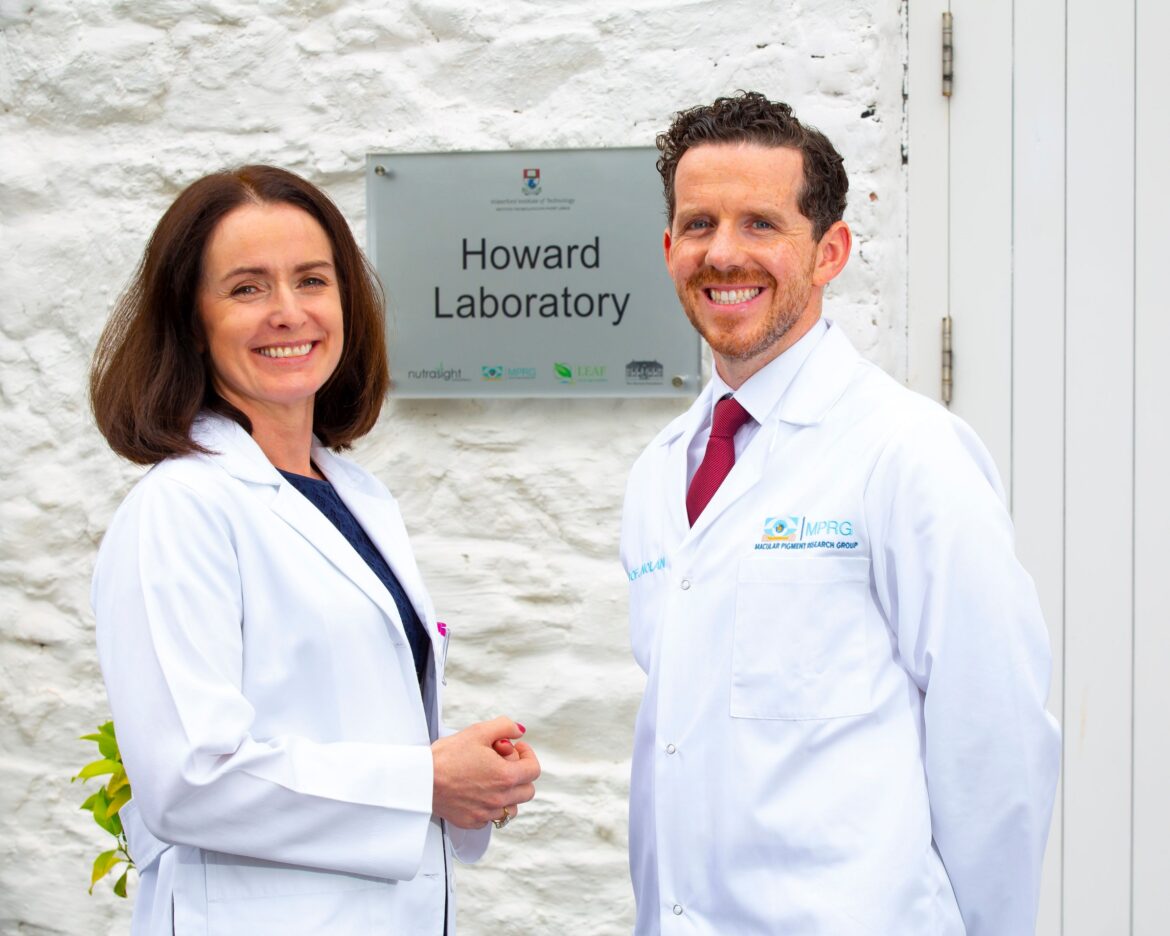Our winter issue is out now. Editor Alison McEvoy shares the latest scientific research on the role of nutrition for cognitive function and brain health. Dive on in to find out more…
Target Your Brain
Combating Alzheimer’s With Nutrition
by Alison McEvoy
Professor John Nolan is one of the brightest minds of Ireland. After studying Science, and ultimately obtaining a PhD, at Waterford Institute of Technology (now South East Technological University), Prof. prevent a disease that affects so many Nolan won a Fulbright Scholarship and people across the board. studied in the Medical College Georgia Professor Nolan was involved with in the US. On his return to Waterford he established the ‘Macular Pigment Research in the world to work with Alzheimer’s Group’ where he studied the role of disease. This was a placebo controlled trial, nutrition in eye health. Just five years after involving people with early-to-moderate winning the European Research Council starting grant he founded the Nutrition formulation of carotenoids, omega-3 Research Centre of Ireland (NRCI).
Currently, Prof. Nolan and his team at the NRCI are studying the role of nutrition for cognitive function and brain health. The goal is to reduce the risk and progression of Alzheimer’s disease. For the many, many Irish families touched by Alzheimer’s, this research heralds good news.
To see science turned in this manner towards nutrition and food supplementation is also a huge turning point. It is recognised that pharmacological treatment often creates numerous side effects. Using nutrition as medicine means that we are harnessing the power of nature in our diets and side effects need not make an appearance.
Brain Nutrition
ReMind is a unique food supplement that reflects the very latest scientific understanding of brain nutrition and is a culmination of research into the role of nutrition in eye and brain health by the NRCI for over 20 years.
The brain seeks out its three main ingredients from our diet to help it function optimally. They are protective ingredients which are naturally found in the brain but which decrease in presence with age and disease. These active ingredients are 1. Carotenoids; plant pigments found in a variety of dark green, yellow, orange and red vegetables which help reduce oxidative damage 2. Omega 3’s; key components of the lipids (fats) in the brain and thus important in maintaining brain structure and function, and mitigating neuroinflammation 3. Vitamin E; an important anti-oxidant and which contributes, among other things, to the stability of the biological membranes of the brain cells.
Gold Standard Research
The recently published clinical trial, titled re-MIND (Memory Intervention with Nutrition for Dementia), was carried out by Professor John Nolan and Dr Rebecca Power of the NRCI in collaboration with Professor Ríona Mulcahy, a consultant physician in general and geriatric medicine at University Hospital Waterford.
For the patients on the active intervention, the trial demonstrated changes in quality of life, with carers reporting improvements in mood. Improved memory was also observed with patients better able to carry out day-to-day activities such as getting dressed independently or making a cup of tea. The results of the trial, which have been published and noted as the most newsworthy paper of 2022 in The Journal of Alzheimer’s Disease, add to the “cumulating body of evidence that targeted nutrition can have a positive impact on symptoms and quality of life in Alzheimer’s disease”, according to Prof Ríona Mulcahy.
Never too early, never too late
It is a terrible thing to see a loved one deteriorate mentally, and also to contemplate one’s own potential deterioration. Finding a support in the area of nutrition is a huge step forward as we can begin to empower ourselves to support our brains well into old age. It is never too early or too late to start helping our brains to function better. There is a wealth of information and openly available research reviews and results online about ReMind and the wonderful work of the NRCI.


